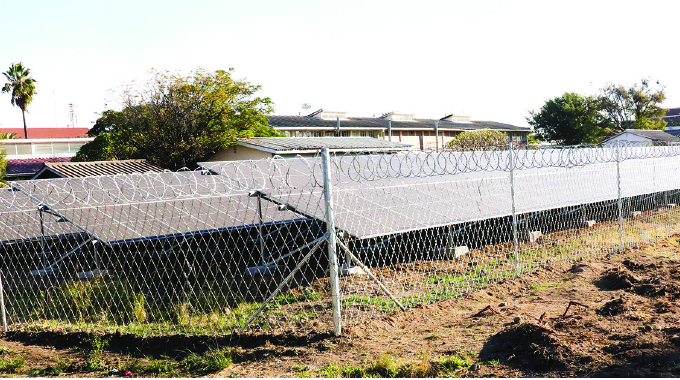Mpilo, UBH get solar systems boost – The Herald
Sikhumbuzo Moyo Bulawayo Bureau
Mpilo Central Hospital and the United Bulawayo Hospitals have received 350-kilowatt solar power systems from Government in a development that marks a significant advancement in improving healthcare delivery in the country.
By using renewable energy, the two hospitals are set to improve their operational efficiencies, reduce costs, and contribute to environmental sustainability. For public hospitals operating under tight budgets, the project will also help free up resources spent on buying energy for other essential services and medical supplies.
The new solar power systems will provide a reliable and sustainable source of electricity, ensuring that critical medical equipment remains operational even during power outages. This is expected to enhance the overall efficiency and quality of healthcare services, contributing to better patient outcomes and more efficient hospital operations.
The use of clean and renewable energy aligns with broader environmental sustainability goals, reducing the hospitals’ carbon footprints and operational costs related to energy consumption.
United Bulawayo Hospitals officials said part of the power generated from the hospital’s solar plant would be channelled toward the national grid.
The United Nations Development Programme (UNDP), in partnership with the Ministry of Health and Child Care, funded the two solar power installations, which are now complete.
UNDP resident representative to Zimbabwe, Dr Ayodele Odusola, together with Permanent Secretary for Bulawayo Provincial Affairs and Devolution Mr Paul Nyoni, Permanent Secretary for Presidential Affairs in the Office of the President and Cabinet Engineer Tafadzwa Muguti, and Permanent Secretary in the Ministry of Skills Audit and Development Ambassador Rudo Chitiga toured the installations last week.
Dr Odusola said the solar project comes with downstream benefits for locals such as skills transfer and job creation.
He said as part of a broader scheme, UNDP has trained 20 people from three provinces in the country on how to maintain and repair the equipment in the event of breakdowns.
“This project was started four years ago and the batteries were purely gel batteries. We are now trying to move everything to lithium and once it’s done, the responsibility becomes that of the Government and hospitals where they are located. Let’s sustain, maintain, and expand this as part of the sustainability plan,” said Dr Odusola.
He said Zimbabwe was one of the few countries in the world that had the future of energy in terms of lithium. Globally, demand for lithium, which is also used in the rechargeable batteries that power electric vehicles, has surged.
Zimbabwe is considered the sixth largest producer of lithium with an estimated output of 1 600 tonnes.
United Bulawayo Hospital’s acting clinical director Mr Trust Mushawarima said the solar installation would ensure minimal disruptions to clinical services through sustainable power.
“This is a good gesture to us and we are extremely grateful and in the long term, the project will drastically cut our electricity cost,” he said.
“We will be able to even feed into the national grid and also save money, which will be channelled towards other clinical services.”
The larger Mpilo Central Hospital will be using all the energy output from the solar system, director of operations Mr Joel Charangwa said.
Besides the two solar projects, UNDP is also undertaking two other major projects at Mpilo Central Hospital, which include the construction of what is set to be Africa’s first World Health Organisation BSC Level Three certified National Tuberculosis Reference Laboratory (NTRBL).
The organisation is also setting up a state-of-the-art incinerator, one of the largest waste management plants in the country. UNDP country civil engineer Ms Vone Mpande said the facility will do 250kg per hour at a combustion temperature of 1 000 degrees.
Incineration is a waste treatment process that involves the combustion of substances contained in waste materials.
At the national level, UNDP has pledged to help the country construct 24 dams in Matabeleland North, Matabeleland South, and Manicaland provinces by 2027 and committed itself to working with the Government in climate-proofing agriculture.


